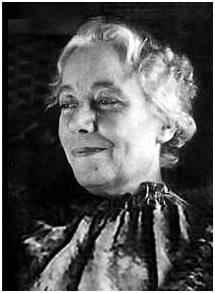
“Life itself still remains a very effective therapist”
Share this quote:
“There is no good reason why we should not develop and change until the last day we live.”
Share this quote:
“Concern should drive us into action, not into a depression.”
Share this quote:
“Fortunately [psychoanalysis] is not the only way to resolve inner conflicts. Life itself still remains a very effective therapist.”
Share this quote:
“The perfect normal person is rare in our civilization.”
Share this quote:
“Like all sciences and all valuations, the psychology of women has hitherto been considered only from the point of view of men”
Share this quote:
“Is not the tremendous strength in men of the impulse to creative work in every field precisely due to their feeling of playing a relatively small part in the creation of living beings, which constantly impels them to an overcompensation in achievement?”
Share this quote:
If you want to be proud of yourself, then do things in which you can take pride
Share this quote:
The fact that compulsive drives for success will arise only in a competitive culture does not make them any less neurotic.
Share this quote:
Also the natural sexual functions of establishing an intimate human contact frequently assume greater proportions. This is a well known fact about detached people for whom sexuality may be the only bridge to others, but it is not restricted to being an obvious substitute for human closeness. It shows also in the haste with which people may rush into sexual relations, without giving themselves a chance to find out whether they have anything in common or a chance to develop a liking and understanding. It is possible of course that an emotional relatedness may evolve later on. But more often than not it does not do so because usually the initial rush itself is a sign of their being too inhibited to develop a good human relationship.
Share this quote:
To find a mountain path all by oneself gives a greater feeling of strength than to take a path that is shown.
Share this quote:
A perfectly normal person is rare in our civilization.
Share this quote:
There is no good reason why we should not develop and change until the last day we live.
Share this quote:
The declining of responsibility for the self can also be hidden behind a pseudo-objectivity. A patient may make astute observations about himself and give a fairly accurate report of what he dislikes in himself. On the surface it seems as though he is perceptive and honest about himself. But he may be merely the intelligent observer of a fellow who is inhibited, fearful, or arrogantly demanding. Hence, since he is not responsible for the fellow he observes, the hurt to his pride is cushioned—all the moreso because the flashlight of his pride is focused on his faculty for keen observations.
Share this quote:
The tenacity with which the neurotic adheres to any attitude is a sure indication that the attitude fulfills functions which seem indispensable in the framework of his neurosis.
Share this quote:
The pride in intellect, or rather in the supremacy of the mind, is not restricted to those engaged in intellectual pursuits but is a regular occurrence in all neurosis.
Share this quote:
Whether we forget something we are not proud of, or embellish it, or blame somebody else, we want to save face by not owning up to shortcomings.
Share this quote:
Pride in many diverse ways is the enemy of love.
Share this quote:
It is naturally a sign of inner liberation when a patient can squarely recognize his difficulties and take them with a grain of humor. But some patients at the beginning of analysis make incessant jokes about themselves, or exaggerate their difficulties in so dramatic a way that they will appear funny, while they are at the same time absurdly sensitive to any criticism. In these instances humor is used to take the sting out of an otherwise unbearable shame.
Share this quote:
For the analyst it is a source of never-ending astonishment how comparatively well a person can function with the core of himself not participating.
Share this quote: